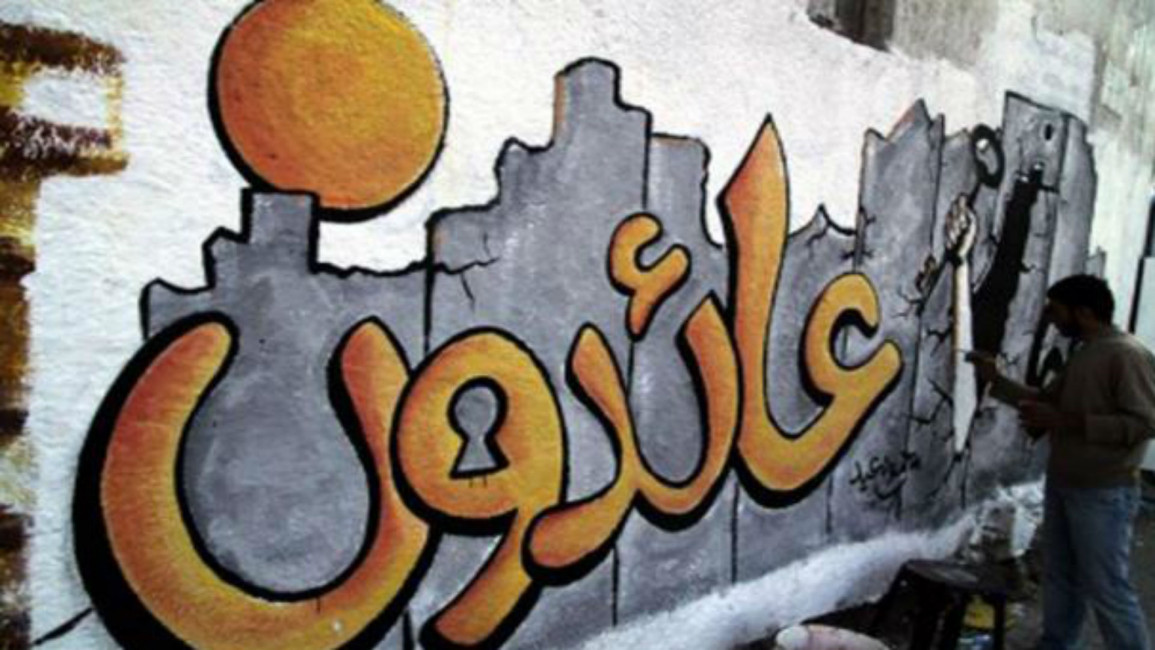
The Palestine question: A cause and an excuse?
Modern Arab history experienced an interruption that lasted for around 40 years between the end of the 1940s and the late 1980s. During that period, the objective of "modernising" the Arab state and Arab society was subordinated to the objective of "liberating Palestine".
The liberation of Palestine was also used as a cover for the totalitarian state and for military coups in several parts of the Arab world.
Changing priorities
The objective of liberating Palestine has not yet been achieved - but that has not prevented a change in the priorities of some Arabs as the world experienced massive changes following the end of the Cold War.
The two decades until the outbreak of the Arab Spring saw the emergence of those who refused to continue to consider the Palestine cause as the "Central Arab Question".
They demanded that "democracy" should, for example, become an alternative central quest in its capacity as the key to resolving all questions - including the liberation of Palestine.
| The objective of 'modernising' the Arab state and Arab society was subordinated to the objective of 'liberating Palestine'. |
Those voices were criticised at the time, particularly because they coincided with the widening of the "peace process" between the Arabs and Israel, with regard to the Oslo agreement and the establishment of the Palestinian Authority.
The critics were accused of serving that supposed "peace", or of working towards normalisation with Israel.
It was therefore rarely possible to interpret the demand of changing the "central question" from a historical perspective, and to understand that demand as a way of dealing objectively with the crisis of Arab civilisation, rather than understanding it as an abandonment of Palestine.
However, the outbreak of the Arab Spring revolutions, and the success of the first of them in Tunisia objectively influenced the degree of Arab interest in the Palestine question as the central cause of the Arab world.
The main Arab question was initially one of revolution against despotism and of working towards democracy.
As a result of subsequent developments, the war on terrorism and resisting extremist movements became the main preoccupation of the Arab powers. All of this reflected a change in the publicly declared positions of peoples and governments.
However, changing the declared (not necessarily genuine) Arab question from the liberation of Palestine to freedom from repression is most likely not detrimental to the Palestine cause.
After Ben Ali's regime collapsed, Tunisians chanted: "The people want to liberate Palestine."
This displayed a clear realisation that repression and occupation are complementary, that one leads to the other, and that they are two faces of the same coin.
Perhaps the people of the Arab Spring understood the continued occupation of Palestine was the outcome of the backwardness of Arab civilisation - continuously presided over by repression - and that occupation is not a central question in its own right.
Repression was not concerned with the progress of civilisation, because repression in itself is the antithesis of the progress of human civilisation.
Moreover, those guilty of repression were only interested in the question of Palestine to use it as a slogan to justify repressive practices, and in many cases as a cover for military coups that established totalitarian states.
Hence the Arabs turned a blind eye to the issue of modernising the state and society on the pretext of the Palestine question. It was as though they believed that they could liberate Palestine without being free themselves.
| After Ben Ali's regime collapsed, Tunisians chanted: 'The people want to liberate Palestine.' |
A blow to development
Perhaps on the anniversary of the Nakba ["catastrophe"] in mid-May, we forget that the establishment of Israel in 1948 was a blow to the Arab modernisation drive, which began under the influence of the ideas of the 19th century rennaissance.
Israel's establishment confused the priorities of Arab intellectuals and politicians, and many abandoned the idea that modernisation was a priority, in favour of the idea encapsulated by the famous saying: "No voice rises above the sound of battle."
The modernisation project was not achieved, making it impossible to move on to another undertaking that could succeed.
It is natural that we should have failed to liberate Palestine, despite all the "precautions" that were taken for that purpose, including those to prohibit the voices opposing the sound of the battle.
Our failure stems from the fact that we did not enter the battle as a modernised nation, particularly with regard to culture, which affects the nation's behaviour. In any case, it was the absence of modernisation in the first place that caused the loss of Palestine.
Hence, it is possible to understand that thinking about the "central question" in the context of the Arab Spring entails refocusing on the original Arab undertaking we abandoned in the 1940s without ever achieving it.
While it is true that events in our modern and contemporary history are more complex than a simple "change of priorities", such a change is, in essence, what has occurred - and it can be considered as a shift in the main direction of contemporary Arab history.
This signifies the existence of undeclared collective thinking on the need to re-embrace the original Arab undertaking: modernisation and the completion of modernisation, because this will guarantee an end to the crisis of civilisation that we are experiencing, including the Palestine question.
Opinions expressed in this article remain those of the author and do not necessarily reflect the opinions of al-Araby al-Jadeed, its editorial board or staff.
This is an edited translation from our Arabic website.




